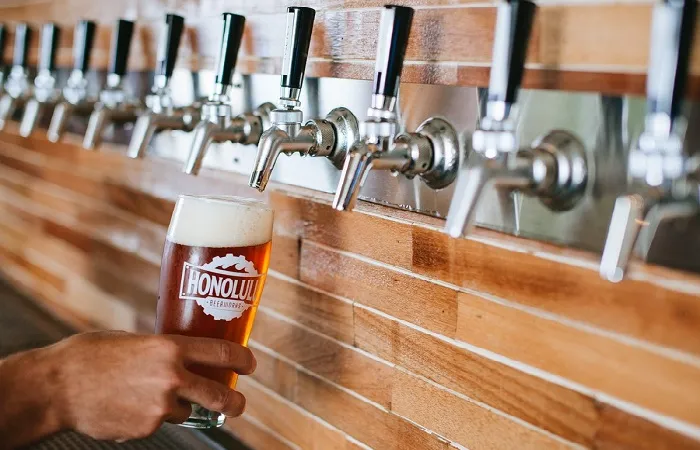Belgium’s beer sector has experienced notable declines in consumption and exports over the past two years, reflecting broader economic challenges and geopolitical instability. In 2024, beer consumption in Belgium fell by 2.1%, following a sharper 6% drop in 2023, driven by rising costs and a strained economic environment.
Both on-trade and off-trade markets have been affected, with bars and restaurants reporting a 2.9% decrease in sales, while retail outlets saw a 1.5% decline. The industry’s struggles are further underscored by the closure of six breweries last year, reducing the total number to 411 and signaling persistent difficulties within the sector.
Historically a strong pillar for the Belgian beer market, exports have also suffered significant setbacks. Exports declined by 3.4% in 2024, continuing the downward trend from a 7.5% drop in 2023. Despite these setbacks, Belgian beer remains a popular export, with 70% of production still sold internationally.
The industry has demonstrated resilience by investing €178 million in 2024 to modernize facilities and enhance sustainability practices. Efforts to promote Belgian beer abroad have also gained momentum, notably through collaborations such as the launch of the first Belgian Beer Week in the UK by James Clay & Sons in partnership with VisitFlanders, which aims to boost both exports and tourism.
The beer sector remains a vital component of Belgium’s economy, contributing approximately €4 billion annually, or about 1% of the country’s GDP. However, the Belgian Brewers Federation has urged policymakers to create a stable business environment to safeguard the sector’s future amid ongoing economic uncertainty.
Krishan Maudgal, director of the Belgian Brewers Association, emphasized the importance of regulatory stability, stating, “Stability and a predictable business climate are essential to ensure a sustainable future for our sector. We therefore very clearly call on the new federal government to guarantee legal certainty and not to impose additional regulatory burdens on beer, or alcohol in general.” Maudgal added, “With more than 400 breweries firmly established in our regions, our brewers must have the space they need to continue to innovate and operate sustainably.”
You Might Be Interested In:


